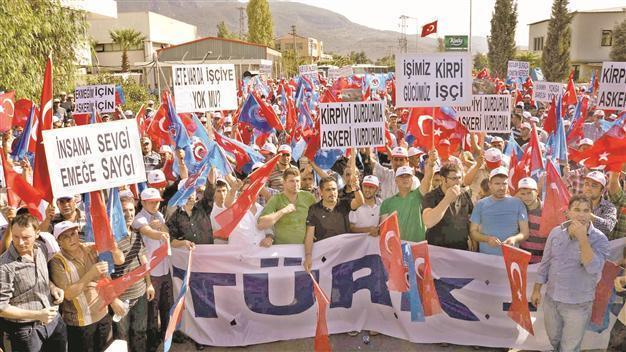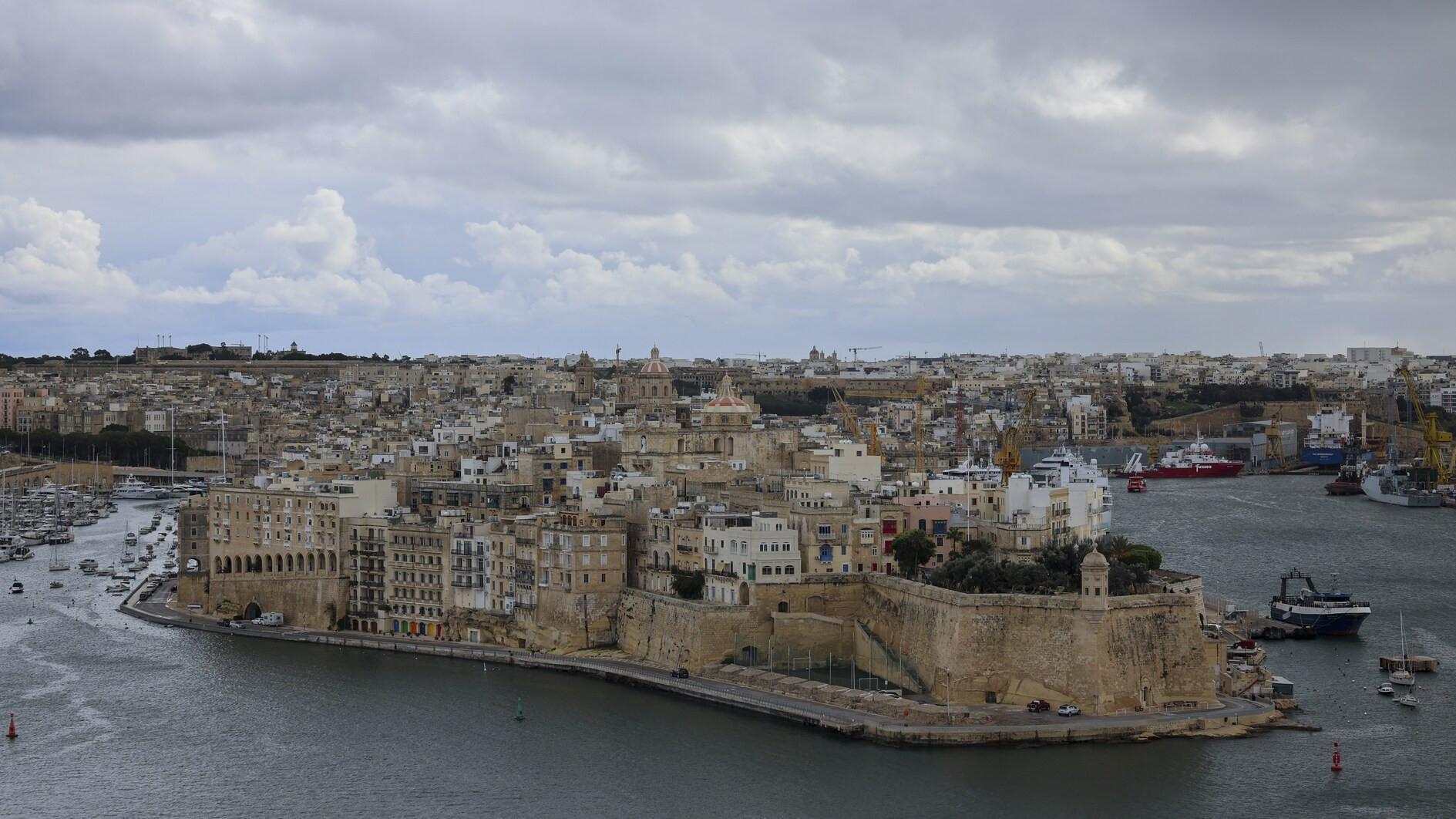Halt in Kirpi line hinders terror fight, irks workers
İZMİR

Workers protesting for their unpaid wages hold placards saying, ‘Don’t stop Kirpi, Don’t let soldiers shot,’ referring to a halt in production of the armed vehicles. AA photo
A halt in production at a plant producing crucial armored vehicles for the Turkish military is both hampering the fight against the outlawed Kurdistan Workers’ Party (PKK) and hurting thousands of workers. The row comes at a time when the PKK has intensified its attacks in eastern and southeastern Turkey. The attacks have sometimes targeted non-armored vehicles carrying unarmed soldiers, thus resulting in current personnel carrying methods being strongly criticized.The non-defense commercial problems of BMC, the maker of Turkey’s Kirpi branded armored carriers, are the reason for the year-long failure in deliveries, the head of the Undersecretariat of Defense (SSM) Murad Bayar told journalists at a meeting in the Aegean province of İzmir. The SSM has continued its payments to the company and the delivery problem is not limited to Kirpi, he said.
“[BMC’s] financial failure has caused delays in getting goods from subcontractors. ... We have made the necessary payments on time for the project. The BMC’s problem is due to its trade activities, and this has also affected our project,” Bayar said.
The SSM signed a deal in 2009 with the İzmir based-company to produce 468 Kirpi’s to be delivered by the end of 2012. The BMC is currently 17 months behind the agreed schedule. Along with the military, police forces are also waiting for 468 Kirpi vehicles whose delivery date has passed.
“This is happening for the first time,” a defense source told the Hürriyet Daily News. “Usually, companies promise a product but production does not meet the requirements and their promises. Kirpi is an exception. It fully meets the requirements but the company cannot meet the production schedule.”
So far, only 273 Kirpis are in use. Delivery of the remaining 185 in the next three months seems impossible. So far, the financial result of a delay is reportedly a 6 million Euro penalty from the SSM to the BMC.
“In defense projects, such a penalty may mean the bankruptcy of a company,” a source commented. The company’s debt to subcontractors is so high that 1 billion Turkish Liras worth of goods are already under sequestration, according to sources.
The BMC is speculated to have talked with SSM undersecretary Murad Bayar to solve the problem. Bayar reportedly said he would change the system and take complaints into consideration. It has also been claimed that the sale of the company was requested, but Bayar refused this.
He also said they were in close contact with the company and that he was hopeful the problem would be solved soon. He added that the BMC had also failed to deliver the vehicles for three other truck tenders.
Kirpi is also among Turkey’s important defense exports items. There are some alternatives to it, but SSM officials are cool on such options, as alternative vehicles mean extra tests and evaluations. In short, alternatives mean losing time for production.
The company officials say that they are hopeful they will find a solution to the financial problem in October 2012.
Employees work unpaid
BMC workers protested on Sept. 26, calling on the firm to make payments and continue production. They chanted slogans such as: “Do not halt Kirpi, do not let soldiers die.”
Halil İbrahim Tosun, head of the BMC workers trade union, said the workers had not been paid for five months and that production was halted 10 days ago. The total amount of salary paid per worker for five months was only 2,300 liras, he said, roughly 1,000 euros. The company employs 3,000 people and creates an additional 32,000 jobs in support sectors, according to a local business leader. The unionist demanded Çukurova, the parent company, create finances for the BMC. Çukurova is controlled by Mehmet Emin Karamehmet, who is also the local shareholder in Turkcell, the country’s largest mobile operator.
















